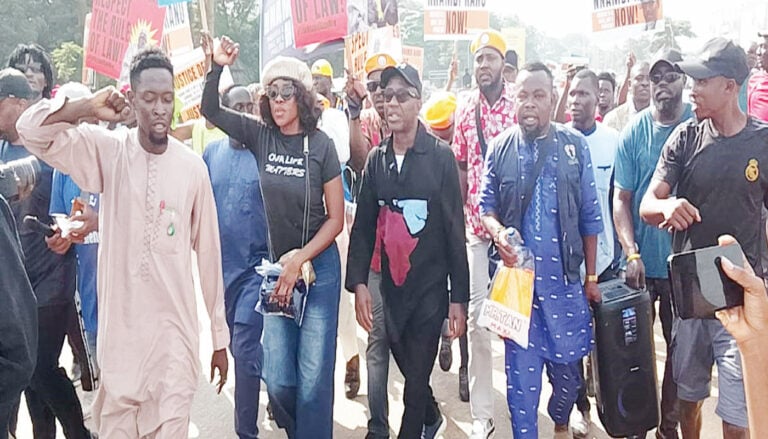Protests demanding the release of Nnamdi Kanu, leader of the Indigenous People of Biafra (IPOB), swept through Abuja and South-East states, halting commercial activities and transportation. Organized by Omoyele Sowore of the #RevolutionNow movement, the #FreeNnamdiKanuNow demonstration in Abuja faced heavy security response, with police using teargas to disperse protesters near the Three Arms Zone, causing gridlock.

Access to key government areas, including Aso Rock Villa and the National Assembly, was restricted, stranding commuters and civil servants. The police, citing a court order banning protests in sensitive zones, defended their actions, denying use of live ammunition and confirming eight arrests, including Kanu’s lawyer Aloy Ejimakor and relative Fineboy Kanu, for arraignment. In the South-East, cities like Umuahia, Aba, Onitsha, and Enugu saw near-total lockdowns, with markets, banks, and schools closed in solidarity or fear of violence.

In Anambra, residents observed a de facto sit-at-home, despite IPOB’s cancellation of such actions. Igbo leaders urged Kanu’s release through dialogue, emphasizing justice and national unity. In Ondo, Igbo traders closed shops in solidarity, while security was heightened in Akure. The Nigeria Security and Civil Defence Corps condemned the protests, vowing to protect national assets and warning of legal consequences for unrest.




